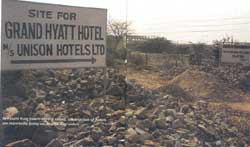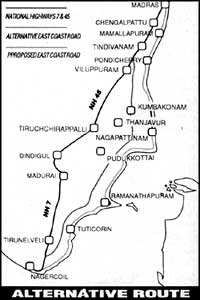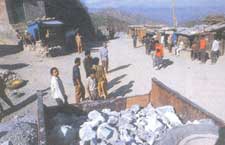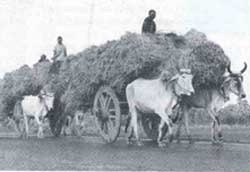Efficiency versus democracy
Industrialist Ratan Tata has reportedly written to the prime minister cribbing about delays in implementing big buck projects. In his capacity as the chair of the government s investment commission
Industrialist Ratan Tata has reportedly written to the prime minister cribbing about delays in implementing big buck projects. In his capacity as the chair of the government s investment commission

This is a story of justice denied. <br> On February 13, 1996, the Supreme Court, the highest seat of justice in the country, ruled that five units of a particular company, producing toxic chemicals in Bichhri village in Rajasthan's Udaipur district, b

Environmentalists express their views on the chief minister of their states

Encroachments by the poor and the rich alike are proving to be the ridge's bane. The malady is monumental, and the court's healing touch has provided incomplete relief at best

The development of birth control methods that use the body's immune system may be more convenient than condoms and pills. But several groups warn against the unknown dangers of such methods.
DTE sought the comments of legal luminaries and journalists on some issues that emerged out of this analysis. The individuals whose opinions appear here are P N Baghwati, former Chief Justice of India, A M Singhvi, additional solicitor general of India; R

Work on the Madras Cuddalore stretch of the East Coast Road has been suspended following objections that construction had begun without the required environmental clearance

Non-governmental organisations (NGOs) have become increasingly influential in the past 50 years. Awareness of human rights and social and environmental causes has increased, and NGOs have helped empower people. This has raised the hackles of power hounds,

<font color=red><b>Controversy over Himachal limestone mining</b></font><br><br> The subject of limestone mining in ecologically fragile Himachal Pradesh has become a political football, with plans changing as governments change. Villagers are divided on

Kamal Nath is one of the few Indian ministers to have acquired an international image. He has traversed the globe to attend various environmental conferences and has also played host to several of his foreign counterparts. Nath argues the new found green
Indian industrialists, from Bajaj to the Tatas and Birlas, have walked away with environmental rape, partly because they lack conscience
V B SALUNKE, a 58-year-old social worker, abandoned his engineering firm in 1972 to mobilise villagers towards community participation in the management of natural resources. The son of an army officer, Salunke developed the system of pani panchayats, or

For manufacturers of ozone destorying substances in the South its time to make a tough call. The protocol brings the bigwigs of the North-based chemical industry to their doorstep. Will they fight by leapfrogging to the best alternatives and beat the comp

The ice cover almost 4.8 km thick is perhaps the most valuable feature of Antarctica, with its record of past atmospheres in the trapped air bubbles

Nepal’s practical approach to biodiversity conservation
EVERYONE recognises the importance of forests. We have over the years set up several structures and evolved policies to try and conserve them. How effective these are is, of course, another question.

Delhi, reduced to a gas chamber due to the proliferation of highly polluting industries, now requires the social and political will to enforce an effective relocation

Many important issues were hardly touched upon at the recently concluded conference on bioresources

The political debate on the Panchayati Raj and Nagarpalika bills does not address the issue of giving power to the people so they can take control of their environment.
In a country so sharply divided between wealth and poverty, luxury and survival, the widening gap between what politicians say and what they do will lead to disaster <br>